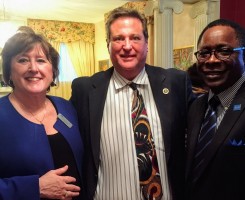Can the government create unconstitutional rules? They shouldn't. The determination is made through the courts. So, yes they can until repealed through litigation!
The First Amendment does not impact the ability of private citizens and organizations to punish or limit speech. This is why it's permissible for a private employer to fire an employee for engaging in speech the employer disapproves of; private employers have the right to manage their employees as they see fit.
The situation grows more complicated when the government is the employer. Like any other employer, the government has a legitimate interest in maintaining efficient offices and agencies. However, it is impermissible for a government employee to have fewer free speech rights than a private citizen not employed by the government.
Courts currently employ a three-part test to determine whether a government employee's speech is protected by the First Amendment.
1) First of all, government employees are only protected by the First Amendment when they are speaking as private citizens. If their speech is part of their official job duties, then they can be fired or disciplined for it.
2) If a government employee was speaking as a private citizen, the next question is, was their speech regarding a matter of public concern? If they weren't speaking on a matter of public concern, the First Amendment will not protect their speech. If they were speaking on a matter of public concern, the First Amendment might protect their speech.
3) If a government employee was speaking as a private citizen on a matter of public concern, the next question is whether the government employer's interest in efficiently fulfilling its public services is greater than the employee's interest in speaking freely.
The government employer has an interest in efficiently providing public services and maintaining good professional relationships within an office. Courts analyze the government employer's interest by considering the following set of factors:
1. Whether the speech would interfere with the employee's responsibilities;
2. The nature of the working relationship between the speaker and those at whom the criticism was directed;
3. Whether the relationship between the speaker and the person criticized was sufficiently close that the speech would create
disharmonious relations in the workplace;
4. Whether the speech would undermine an immediate superior's discipline over the employee; and
5. Whether the speech would compromise the loyalty and confidence required of close working employees.
When close working relationships are essential to fulfilling public responsibilities, a wide degree of deference is given to the government employer's judgment. That is why caution and prudence should be exercised when any governmental entity seeks to create rules which could impact any of an employee's protected constitutional rights which are afforded to every citizen.












